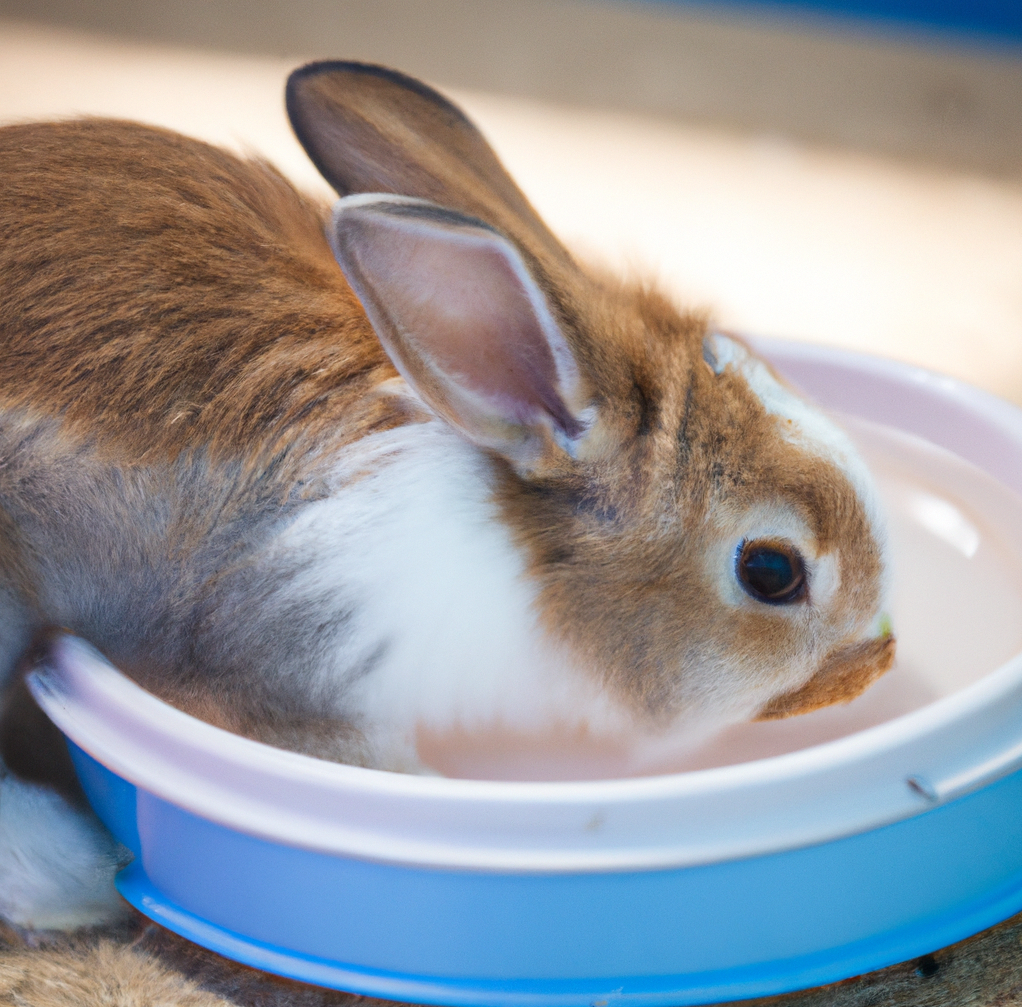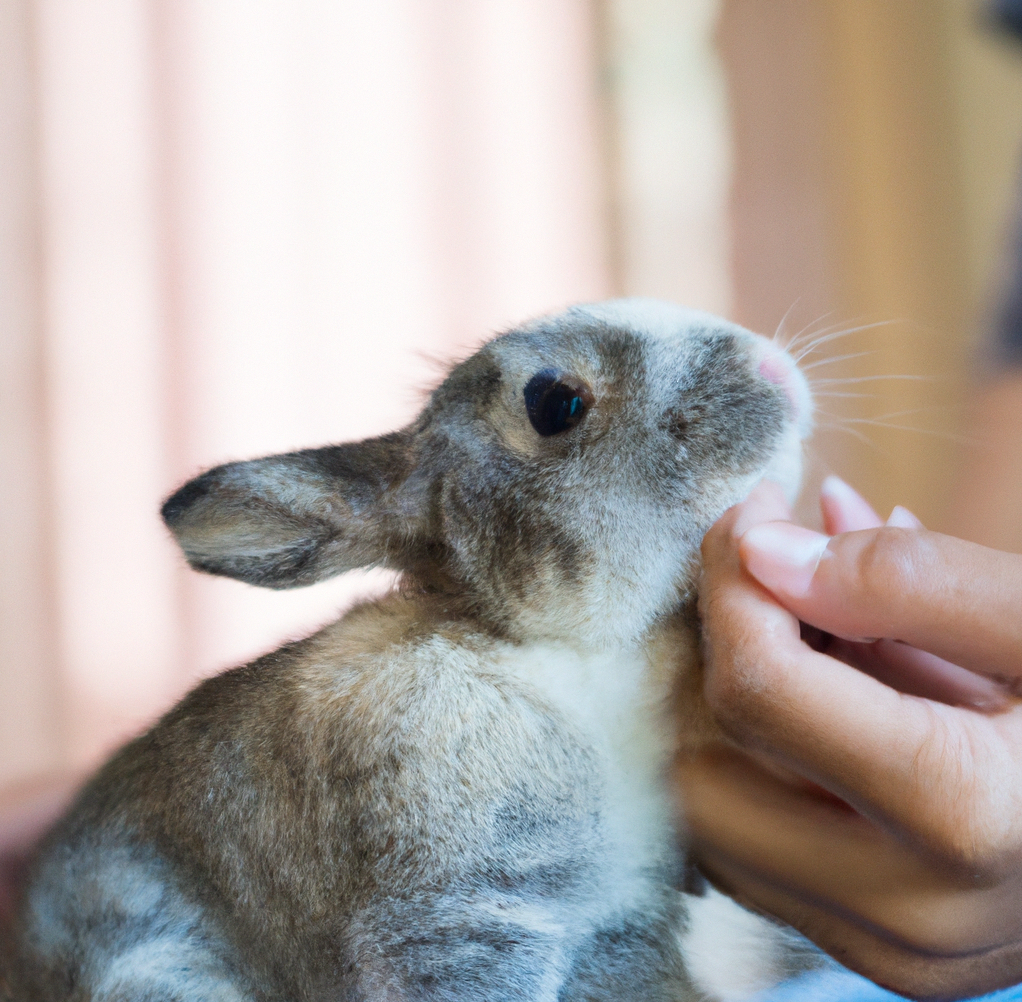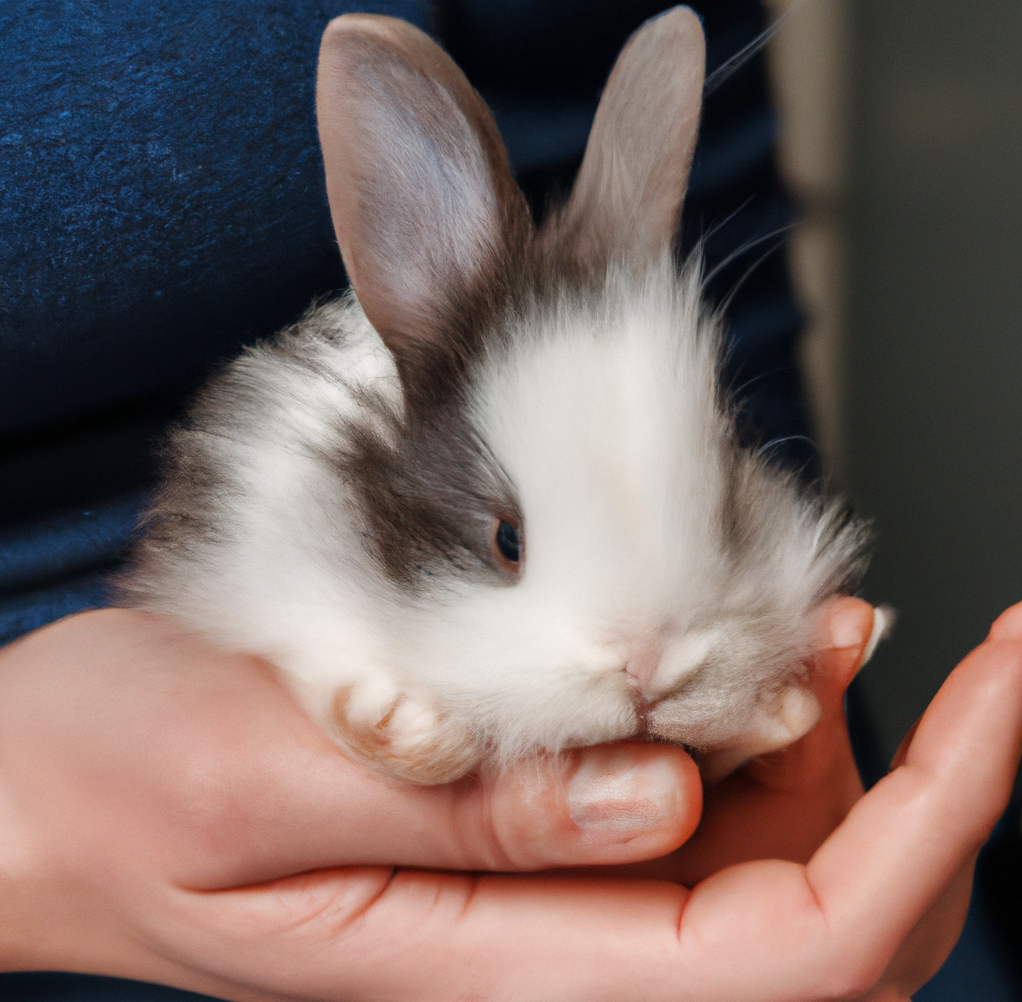When Can You Handle Baby Rabbits? is a great guide for anyone who is new to caring for baby rabbits. With this guide, you will learn the basics of how to properly handle baby rabbits and the best times to do so. This guide will also provide you with helpful tips and tricks for bonding with your pets, as well as the warning signs of when it is too early to handle young rabbits. With the information in this guide, you can ensure the safety and wellbeing of your baby rabbits and create a rewarding relationship with your new pets.
What to Consider Before Taking Home Baby Rabbits
1. Space Requirements: Before bringing home baby rabbits, it is important to be sure you have enough space to accommodate them. Rabbits need plenty of room to move around, as well as enough space to build a secure, safe enclosure.
2. Diet: Rabbits require a balanced diet of hay, vegetables, pellets, and fresh water. In addition to providing the right food, it’s important to monitor the rabbits’ food consumption to ensure they are getting the proper nutrition.
3. Veterinary Care: Baby rabbits should receive regular veterinary care to ensure their health. This includes vaccinations, parasite control, and general check-ups. It’s important to be sure you can provide the necessary medical care before bringing home baby rabbits.
4. Temperament: Rabbits can be easily startled and can become aggressive if not properly handled. It is important to take the time to get to know the rabbits before bringing them home and to ensure they are socialized and comfortable with people.
5. Cleanliness: Rabbits require daily maintenance to keep their enclosures clean. This includes cleaning their litter boxes, providing fresh hay, and monitoring the rabbits’ droppings. It is important to be aware of the amount of time and effort necessary to properly care for baby rabbits before bringing them home.
6. Time Commitment: Rabbits need plenty of attention and exercise to stay healthy and happy. It is important to be sure you have the time and resources to provide them with the care they need.
What Age Can You Handle Baby Rabbits?
It is generally recommended that, if handled, baby rabbits should not be handled until they are at least 8 weeks of age. Before this age, their bones are still quite delicate, and handling them too early can result in permanent damage. Additionally, their immune systems are still immature, and handling them too early can lead to increased risk of infection and disease. Therefore, it is best to wait until the baby rabbits are at least 8 weeks of age before handling them.
Tips for Responsible Rabbit Handling
1. Always approach your rabbit slowly and calmly. Start at the rabbit’s level, sit or kneel down, and let your rabbit come to you.
2. Speak softly and gently to your rabbit. Rabbits can become easily startled by loud noises.
3. Support your rabbit’s body while holding it. Support its hind legs and chest with one hand, and its back and neck with the other.
4. Be aware of your rabbit’s body language. Rabbits will thump their feet, move their ears back, and flatten themselves when they are feeling scared or stressed.
5. Avoid picking your rabbit up by the ears or scruff. These are very sensitive areas and can cause your rabbit pain.
6. Never allow children to handle rabbits without supervision. Rabbits can be easily scared and hurt by rough handling.
7. Never leave your rabbit unattended around other animals. Rabbits can be easily frightened or injured by other animals.
8. Always provide your rabbit with a comfortable and secure place to rest. A cage or hutch is a great way to keep your rabbit safe and secure.
9. Make sure you have regular veterinary check-ups for your rabbit. This will ensure that your rabbit is in good health and any illnesses can be caught early.
What Kind of Cage is Best for Baby Rabbits?

When considering what type of cage is best for a baby rabbit, there are several factors to consider. First, the cage should be large enough for the rabbit to move around in freely. Baby rabbits can grow quickly, so it is important to buy a cage that will accommodate the rabbit as it grows. The cage should also have plenty of space for the rabbit to play and explore, as well as a comfortable area for napping. It should also be made from a durable material such as metal or plastic, and it should have easy-to-clean surfaces.
The cage should also have a secure lid, as baby rabbits can be quite active and may be able to escape if the lid is not secure. The cage should also be placed in an area that is out of direct sunlight and away from drafts, as rabbits can get too hot or too cold if they are exposed to extreme temperatures. Finally, the cage should be equipped with a water bottle and food dish, as well as toys and other items to keep the rabbit entertained.
By taking these factors into consideration, you can choose a cage that is comfortable, secure, and will provide your baby rabbit with plenty of room to grow and play.
What is the Best Diet for Baby Rabbits?
The best diet for baby rabbits is one that is high in nutrition and low in calories. The diet should include a variety of fresh vegetables, fruits, and hay. When it comes to vegetables, leafy greens are a great source of nutrients and should be included in the diet. Carrots, celery, and bell peppers are also good choices. Fruits such as apples, bananas, and pears can be offered in moderation, as these can be high in sugar. Hay is an important part of the diet and should be provided daily. It is best to feed a combination of timothy, alfalfa and oat hay. Additionally, a high-quality pellet diet specifically designed for baby rabbits should be provided as well. This should make up the bulk of their diet, as it is a complete source of nutrition. Fresh water should be available at all times and should be changed daily.
Overall, it is important to ensure that baby rabbits are receiving a balanced and nutritious diet. This should include a variety of fresh vegetables, fruits, hay, and a high-quality pellet diet. Providing these items in the correct amounts will help ensure that baby rabbits stay healthy and happy.
How to Socialize Baby Rabbits
Socializing baby rabbits is an important part of their development. It is important to remember that rabbits are social animals and require social interaction to stay healthy and happy.
The best time to start socializing baby rabbits is when they are between six and seven weeks of age. At this age, rabbits are more open to new experiences and less fearful of the world around them. It is important to introduce them to people, other animals, and new environments gradually, so as not to overwhelm them.
To begin socializing your baby rabbits, start by handling them gently, petting them, and speaking to them in a soft voice. This will help them become used to the sensation of being handled and the sound of your voice.
When introducing your baby rabbits to other animals, make sure that they are supervised at all times, so that they can be separated if necessary. It is also important to provide plenty of hiding spaces for them, so that they have a place to retreat if they become overwhelmed.
You can also introduce your baby rabbits to new environments by taking them for walks on a harness or placing them in a playpen. This will give them the opportunity to explore new places and sights.
Finally, it is important to provide your baby rabbits with plenty of toys and activities. This will give them something to do and help stimulate their minds.
Socializing baby rabbits takes time and patience, but it will be worth it in the end. With proper socialization, your rabbits will grow into happy and healthy animals.
How to Introduce Baby Rabbits to Other Pets
Introducing a new baby rabbit to other pets in your home can be a challenging process, but with the right steps, it can be done successfully. To ensure a safe and successful introduction, it is important to keep a few key points in mind.
First, introduce the animals to each other in a neutral area away from their respective homes. This will help ensure that the animals do not feel territorial and will not be as likely to fight. Choose a location that is free of distractions, such as people or loud noises.
Second, be sure to supervise the animals at all times and keep them separated until they become comfortable with each other’s presence. Allow the animals to approach each other slowly, and reward them with treats or praise when they show signs of comfort, such as sniffing each other’s heads or tails. Do not force the animals to interact if they seem uncomfortable.
Third, be sure to provide plenty of hiding places for the rabbit. This will help the rabbit feel safe and secure. Provide the rabbit with its own litter box, food, and water.
Finally, be patient. It may take the animals several weeks or months to get used to each other. Be sure to monitor the animals and look for any signs of aggression, such as hissing or growling. If any aggressive behavior occurs, separate the animals immediately.
By following these steps, you can successfully introduce a new baby rabbit to other pets in your home. With patience and understanding, the animals can learn to live peacefully together.
What to Do if You Find an Abandoned Baby Rabbit

If you find an abandoned baby rabbit, there are several steps you should take to ensure its safety. Firstly, you should check for any injuries and ensure the rabbit is warm. If the rabbit is not injured, you should leave it alone and keep an eye on it from a distance. If the rabbit appears to be injured or in distress, it is important to contact a licensed wildlife rehabilitator as soon as possible. Rabbit kits should not be handled as it can cause them considerable stress.
The next step is to provide food and shelter for the rabbit, as it is likely to be hungry and vulnerable. You should make sure the area is safe and secure, away from predators. Place a shallow bowl of water and some hay nearby, and provide a warm shelter such as a box or an inverted flower pot. A wild baby rabbit should not be fed cow’s milk, as this can cause an upset stomach. Instead, offer a special diet of fresh fruits, vegetables and hay.
It is important to remember that wild rabbits should not be handled, as this can cause them considerable stress. If the rabbit appears to be in good health and is not injured, it is best to leave it alone. If the rabbit is injured, it should be taken to a licensed wildlife rehabilitator as soon as possible. If you are able to provide food and shelter to the rabbit, you should check on it regularly and make sure it is safe.
Conclusion
In conclusion, it is important to be aware of when baby rabbits can be handled as it can be detrimental to their health and wellbeing if it is done too soon. It is important to wait until the baby rabbits have been weaned and are at least 8 weeks old before handling them, as they will be more resilient to the stress of being handled. Additionally, it is important to handle the baby rabbits gently and with care, and to observe them for any signs of distress or discomfort.

